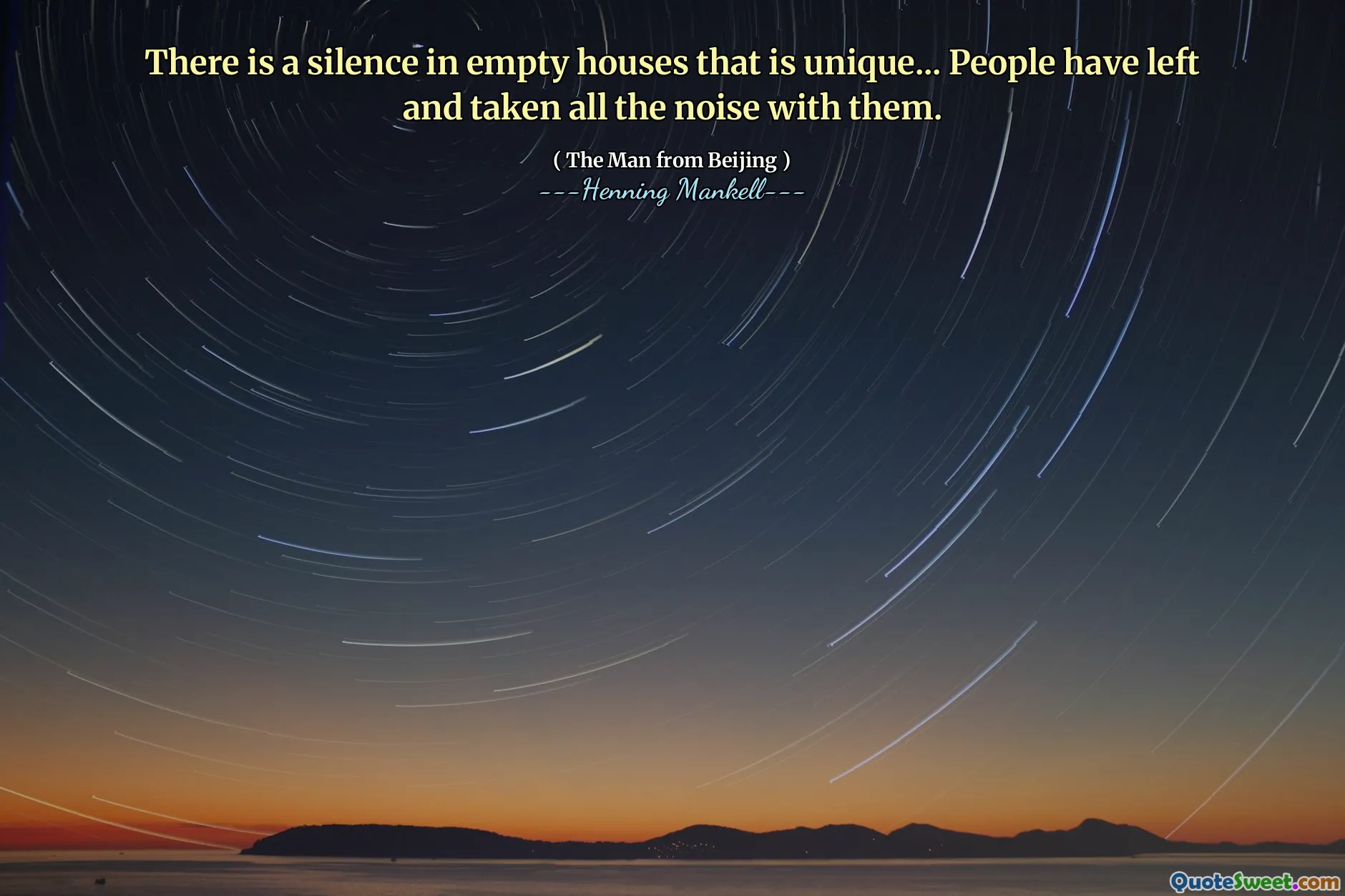
There is a silence in empty houses that is unique... People have left and taken all the noise with them.
In Henning Mankell's "The Man from Beijing," the author captures the distinctive silence of empty homes, emphasizing how a space transforms when people leave. This silence holds a unique quality, as it reflects the absence of life and the departure of vibrancy. The sounds that once filled the rooms vanish, leaving behind a haunting quiet that can evoke a range of emotions.
This idea suggests that homes are not just physical spaces, but also repositories of memories and experiences. When the inhabitants are gone, the atmosphere shifts dramatically, and the emptiness can be felt deeply. Mankell's depiction of this silence invites readers to reflect on the significance of human presence and the emotional landscape that defines our living environments.











